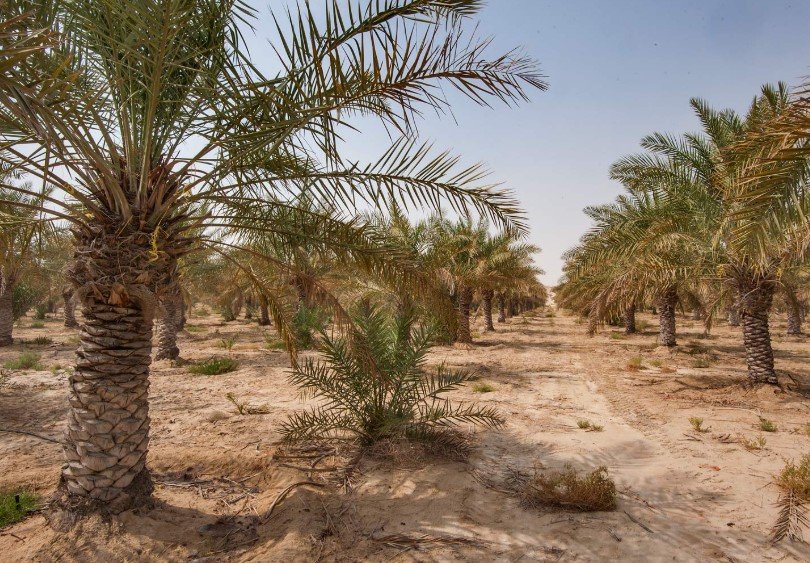Egypt has claimed the number one spot in worldwide date production this year, churning out about 1.9 million tons that make up roughly 19 percent of the global total. This achievement stems from expanded farming areas, better growing methods, and ideal weather in key regions like the New Valley, as shared during a recent press event in Cairo.
Global Rankings and Production Figures
Egypt’s lead in date production stands out in 2025, with output hitting 1.9 million tons, up from previous years. This growth comes from ongoing investments in palm tree research and modern farming techniques.
Saudi Arabia holds second place with 1.64 million tons, while Algeria takes third at 1.32 million tons. These top producers drive much of the world’s supply, meeting rising demand for dates in food, health products, and exports.
Other notable countries include Iran at fourth with around 1.03 million tons and Pakistan in fifth with 0.73 million tons. These rankings show how Middle Eastern and North African nations dominate the industry.
| Rank | Country | Production (Million Tons) | Global Share (%) |
|---|---|---|---|
| 1 | Egypt | 1.9 | 19.33 |
| 2 | Saudi Arabia | 1.64 | 17.01 |
| 3 | Algeria | 1.32 | 13.71 |
| 4 | Iran | 1.03 | 10.68 |
| 5 | Pakistan | 0.73 | 7.57 |
This table highlights the top five based on the latest 2025 estimates, showing Egypt’s clear edge.

Economic Impact on Egypt
The date sector boosts Egypt’s economy, with market value reaching about 7 billion dollars in 2024 and expected to grow further. This contributes to jobs in farming, processing, and trade, especially in rural areas.
Exports play a big role, with Egypt shipping dates to Europe, Asia, and beyond. Recent reforms in mining and agriculture have helped, aiming to raise the sector’s share in the national GDP to 5 or 6 percent by 2030.
Rising global demand for healthy snacks has increased prices, benefiting Egyptian farmers. Government programs support this by providing better seeds and irrigation, leading to higher yields.
In 2025, production has helped stabilize food supplies amid economic challenges, tying into broader growth like the 4.5 percent GDP rise reported recently.
Key Events and Developments
A press conference at the Omani Embassy in Cairo spotlighted Egypt’s success, launching the International Date and Honey Exhibition in Muscat. Officials discussed shared experiences in date farming between Egypt and Oman.
Egypt’s output represents 24 percent of Arab production, underscoring its regional leadership. This comes from diverse date varieties known for quality, which fetch premium prices abroad.
Recent stats show 2021 as a peak year with 1.85 million tons, but 2025 figures suggest even higher volumes due to expanded cultivation.
Market Trends and Future Outlook
The global date market is set to hit 16 billion dollars in 2025, growing to 18.76 billion by 2030. This expansion is fueled by health trends, as dates offer natural sweetness and nutrients.
Challenges include climate changes affecting water supplies, but Egypt counters this with research into resilient palm varieties.
- Health benefits: Dates provide fiber, vitamins, and energy, popular in diets worldwide.
- Export growth: Egypt’s shipments rose 10 percent in the last year, targeting new markets.
- Sustainability efforts: Programs focus on water-efficient farming to maintain output.
Projections indicate steady increases, with Egypt likely to keep its top rank through innovation.
Challenges and Opportunities Ahead
Water scarcity remains a hurdle, as date palms need plenty of irrigation in hot climates. Egypt addresses this with modern systems and research labs dedicated to palm development.
Opportunities lie in value-added products like date syrup and snacks, which could boost income. Partnerships with countries like Oman open doors for knowledge sharing and joint events.
As global demand climbs, Egypt’s position strengthens its role in food security and trade.
What do you think about Egypt’s lead in date production? Share your thoughts in the comments and spread this story with friends who love global food trends.
